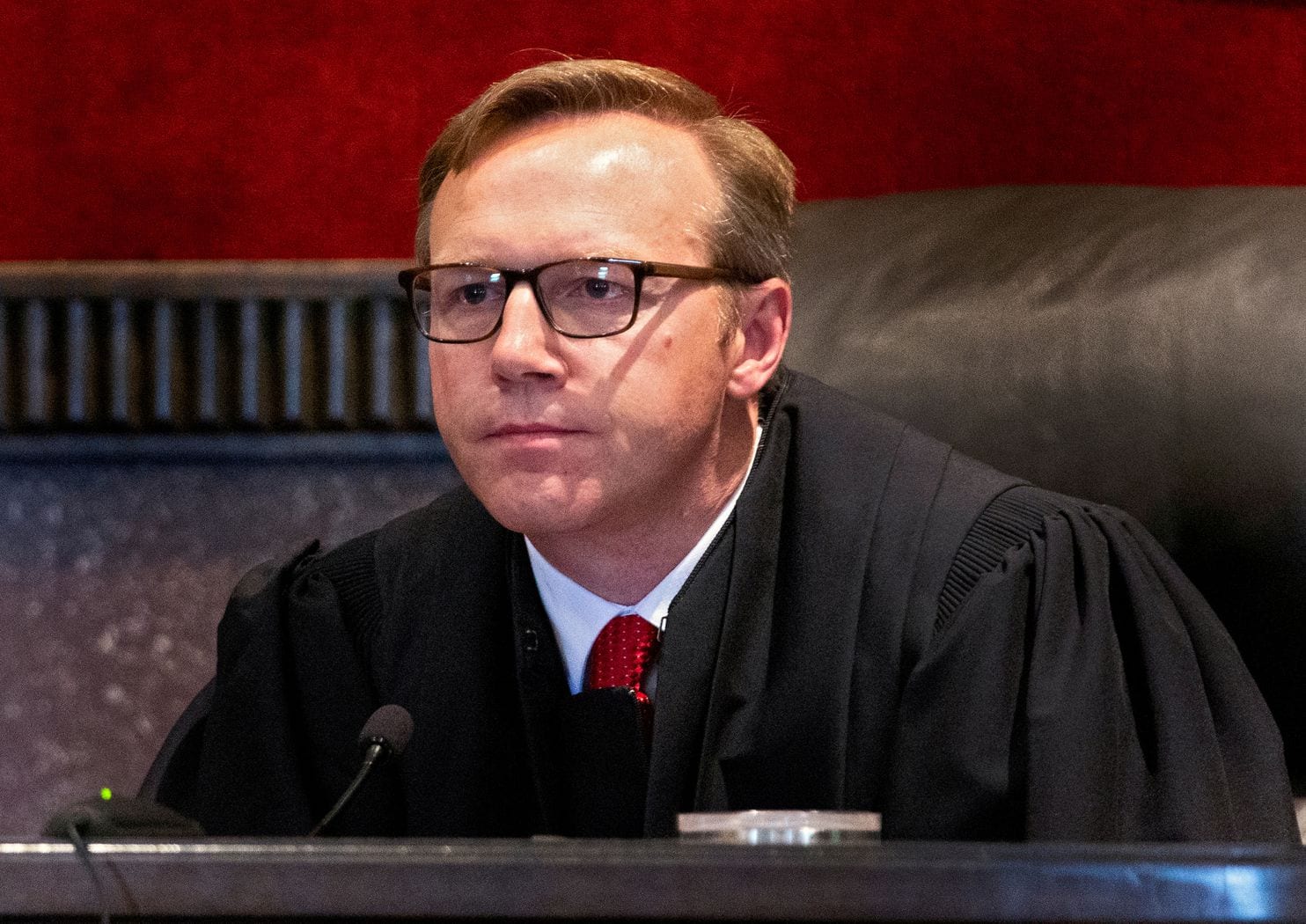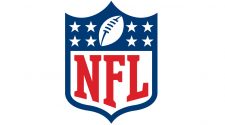NORMAN, Okla.— A judge Monday found Johnson & Johnson responsible for fueling Oklahoma’s opioid crisis, ordering the health care company to pay $572 million to redress the devastation wrought by the epidemic on the state and its residents.
Cleveland County District Judge Thad Balkman’s landmark decision is the first to hold a drugmaker culpable for the fallout of years of liberal opioid dispensing that began in the late 199os, sparking a nationwide epidemic of overdose deaths and addiction. More than 400,000 people have died of overdoses from painkillers, heroin and illegal fentanyl since 1999.
“The opioid crisis has ravaged the state of Oklahoma and must be abated immediately,” Balkman said, reading part of his decision aloud from the bench Monday afternoon.
With more than 40 states lined up to pursue similar claims against the pharmaceutical industry, the ruling in the first state case to go to trial could influence both side’s strategies in the months and years to come. Its impact on an enormous federal lawsuit brought by nearly 2,000 cities, counties, Native American tribes and others, which is scheduled to begin in October, is less certain.
“As a matter of law, I find that defendants’ actions caused harm, and those harms are the kinds recognized by [state law] because those actions annoyed, injured or endangered the comfort, repose, health or safety of Oklahomans,” Balkman wrote in the decision.
Johnson & Johnson, which has denied any wrongdoing, said it would appeal the decision.
Oklahoma Attorney General Mike Hunter (R) brought suit in 2017 against three major drug companies, accusing them of creating “a public nuisance” by showering the state with opioids, while downplaying the drugs’ addictive potential and persuading physicians to use them even for minor aches and pains. Before the late 1990s, physicians reserved the powerful drugs primarily for cancer and post-surgical pain and end-of-life care.
More than 6,000 Oklahomans have died of painkiller overdoses since 2000, the state charged in court papers, as the number of opioid prescriptions dispensed by pharmacies reached 479 every hour in 2017.
Johnson & Johnson’s products — two prescription opioid pills and a fentanyl skin patch sold by its subsidiary, Janssen Pharmaceuticals — were a small part of the painkillers consumed in Oklahoma. But Hunter painted the company as a “kingpin” of the drug trade because two other companies it owned grew, processed and supplied 60 percent of the ingredients in painkillers sold by most drug companies.
“At the root of this crisis was Johnson & Johnson, a company that literally created the poppy that became the source of the opioid crisis,” the state charged.
The state also said that Johnson & Johnson took active part in the pharmaceutical industry’s effort tochange doctors’ reluctance to prescribe opioids by mounting an aggressive misinformation campaign that targeted the least knowledgeable physicians.
The company’s “marketing scheme was driven by a desire to make billions for their pain franchise,” Hunter wrote. “To do this, they developed and carried out a plan to directly influence and convince doctors to prescribe more and more opioids, despite the fact that defendants knew increasing the supply of opioids would lead to abuse, addiction, misuse, death and crime.”
Oklahoma settled in March with Purdue Pharma, manufacturer of OxyContin, accepting $270 million from the company and its owners, the Sackler family. Most of that will go to a treatment and research center at Oklahoma State University, although the federal government is seeking a portion of the money.
In May, two days before the trial began, the state settled with Teva Pharmaceuticals, an Israeli-based manufacturer of generic drugs, for $85 million.
That left corporate giant Johnson & Johnson, which chose to fight the accusations in what became a seven-week trial before Balkman. There was no jury.
The core of Johnson & Johnson’s defense was that it could not be held liable for supplying legal products and ingredients, which were highly regulated by the Food and Drug Administration, the Drug Enforcement Administration and state authorities themselves.
At trial, company lawyers sought to rebut accusations of a misinformation campaign by attributing them to third parties and contending sales calls to doctors did not lead to overprescribing, or the drug crisis.
“At the heart of the state’s case is the premise that stray promotional statements by Janssen over the course of two decades somehow caused Oklahoma’s opioid abuse crisis,” their lawyers wrote, referring to the subsidiary that supplied the opioids. “Never once, however, did the state identify a single Oklahoma doctor who was misled by a single statement Janssen made,” they said in documents filed at the conclusion of the trial.
As for its two subsidiaries that grew, refined and supplied the ingredients that went into painkillers, Johnson & Johnson lawyers said that Noramco and Tasmanian Alkaloids engaged in legal commerce under the watchful eye of the DEA and in compliance with the federal Controlled Substances Act.
Legally, the trial centered on the state’s novel, perhaps unprecedented, attempt to claim the drug company created a public nuisance in the state of Oklahoma. Historically, that law has been used against loud neighbors, brothels and polluters who used their properties in ways that harmed others. The remedy has been to force them to stop.
But in this case, Oklahoma, citing the law, said the drug company’s conduct did “annoy, injure and endanger the comfort, repose, health and safety of others,” as well as “render Oklahomans insecure in life and in the use of property.”
Hunter asked for $17.5 billion over 30 years to help pay for treatment, emergency care, law enforcement, social services and other needs that will be required long into the future to address the fallout from opioid addiction.
An Oklahoma law professor called that a novel interpretation, but said it could pass legal muster. But in May, a North Dakota judge threw out a similar state lawsuit against Purdue.
The drug company’s lawyers contend the state’s argument rested on “radical theories unmoored from more than a century of Oklahoma case law.” They noted that “no Oklahoma court has ever awarded a plaintiff a cash recovery” to stop a public nuisance.
Many other states, cities and counties that have sued drug companies under similar laws were watching Balkman’s decision closely.
Read more
76 billion opioid pills: Newly released federal data unmasks the epidemic
As lawyers zero in on drug companies, a reckoning may be coming
Drug company to face first opioid trial in Oklahoma as families of the dead seek recompense















Federal Judge Reggie Walton Condemned Trump’s Comments About Judge Juan Merchan On CNN